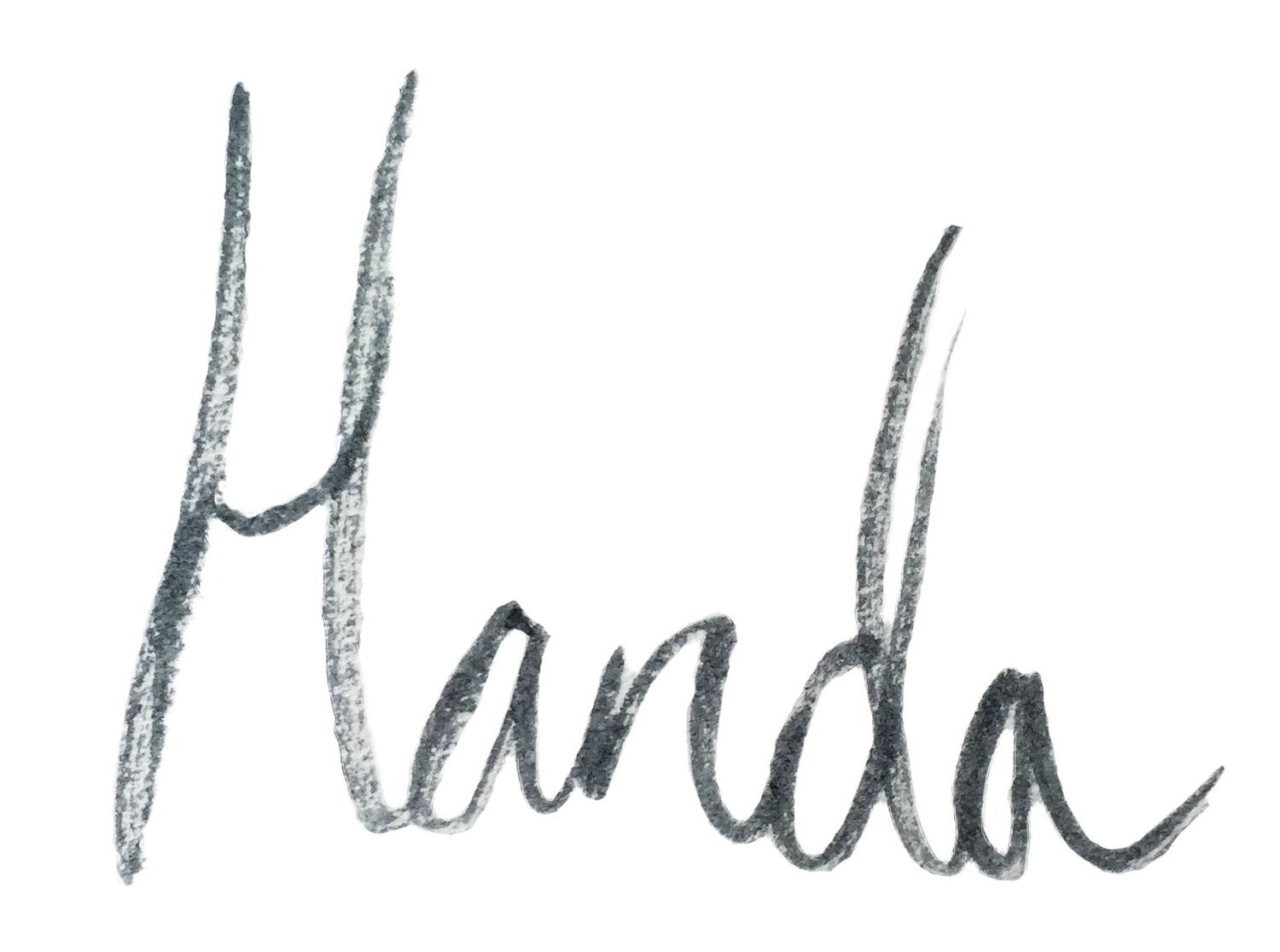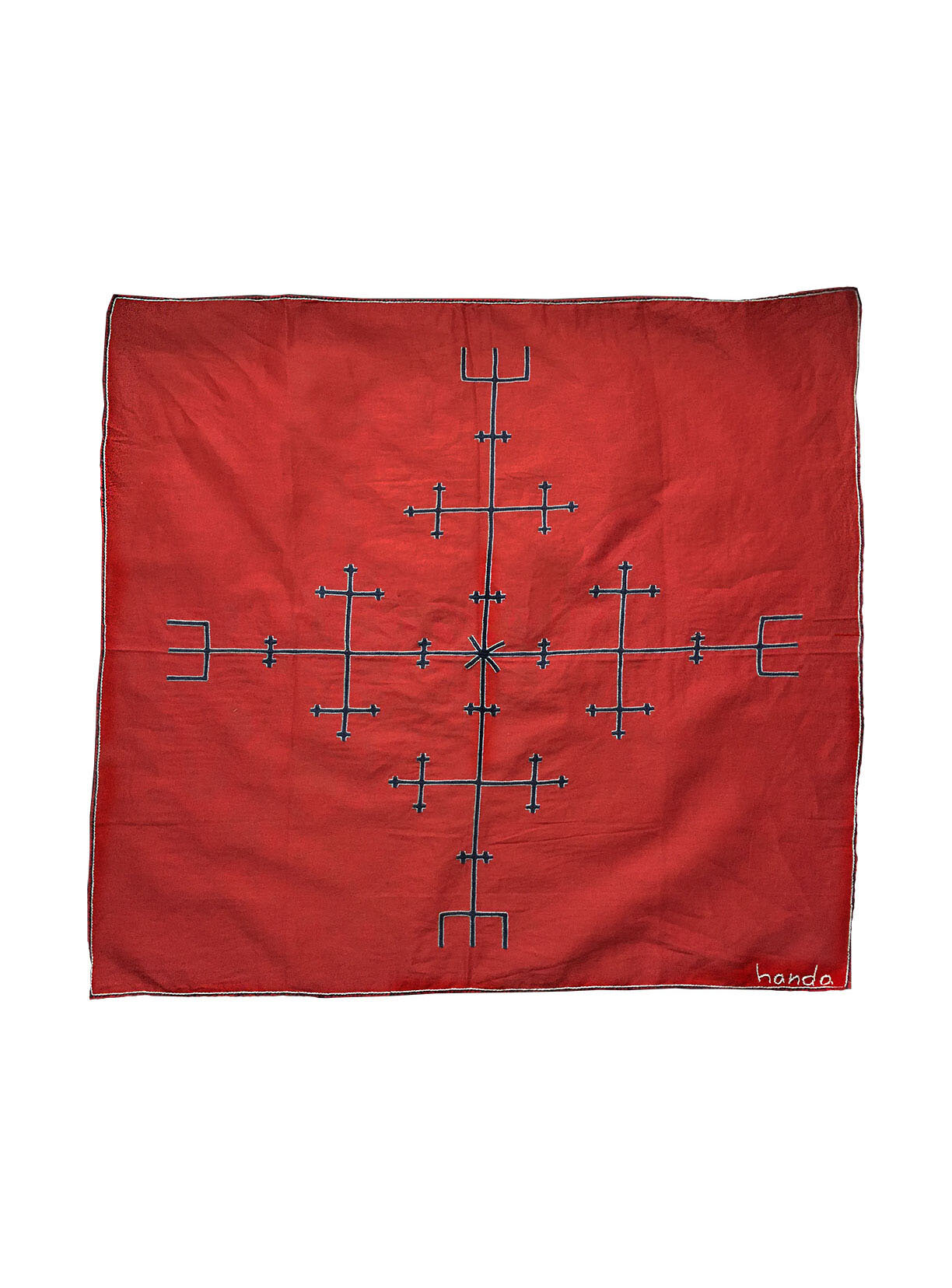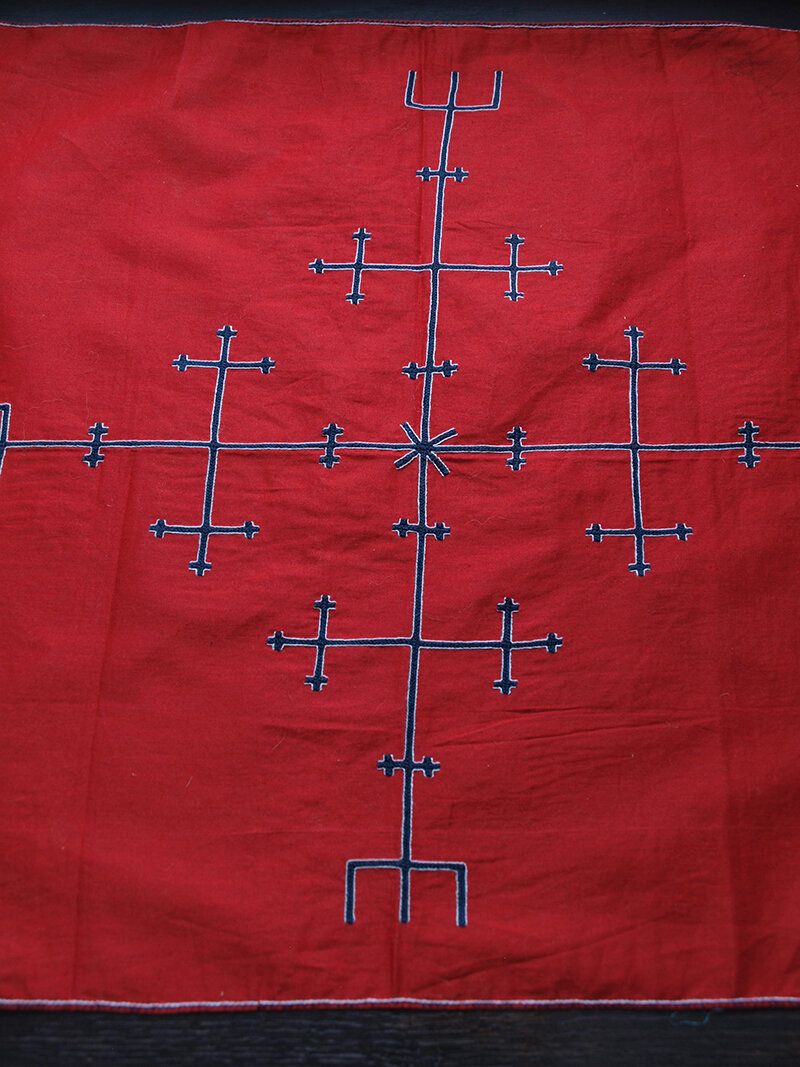Hand-Embroidered Pakudos Bandana
Lightweight, and deep red with a striking white and navy 'Pakudos' motif, this is our new wardrobe staple! Wrap it around your neck, braid it into your hair or keep as a hanky. The symbol is the 'Pakudos' that is believed to bring protection to the wearer.
Indigenous Philippine Mangyan women take a few days to complete these pieces. Embroidery was historically the shortest part of the process as they would plant, harvest, separate, dry, spin, and then weave the cotton fibers. Today, however, the cotton is purchased at the market and then cut + embroidered.
100% cotton
21" x 21"
tucked and embroidered hem
made by the indigenous Mangyan women of the Philippines
Hand wash carefully with warm water
Embroidery will vary slightly from piece to piece due to the nature of hand embroidery.
Lightweight, and deep red with a striking white and navy 'Pakudos' motif, this is our new wardrobe staple! Wrap it around your neck, braid it into your hair or keep as a hanky. The symbol is the 'Pakudos' that is believed to bring protection to the wearer.
Indigenous Philippine Mangyan women take a few days to complete these pieces. Embroidery was historically the shortest part of the process as they would plant, harvest, separate, dry, spin, and then weave the cotton fibers. Today, however, the cotton is purchased at the market and then cut + embroidered.
100% cotton
21" x 21"
tucked and embroidered hem
made by the indigenous Mangyan women of the Philippines
Hand wash carefully with warm water
Embroidery will vary slightly from piece to piece due to the nature of hand embroidery.
Lightweight, and deep red with a striking white and navy 'Pakudos' motif, this is our new wardrobe staple! Wrap it around your neck, braid it into your hair or keep as a hanky. The symbol is the 'Pakudos' that is believed to bring protection to the wearer.
Indigenous Philippine Mangyan women take a few days to complete these pieces. Embroidery was historically the shortest part of the process as they would plant, harvest, separate, dry, spin, and then weave the cotton fibers. Today, however, the cotton is purchased at the market and then cut + embroidered.
100% cotton
21" x 21"
tucked and embroidered hem
made by the indigenous Mangyan women of the Philippines
Hand wash carefully with warm water
Embroidery will vary slightly from piece to piece due to the nature of hand embroidery.






